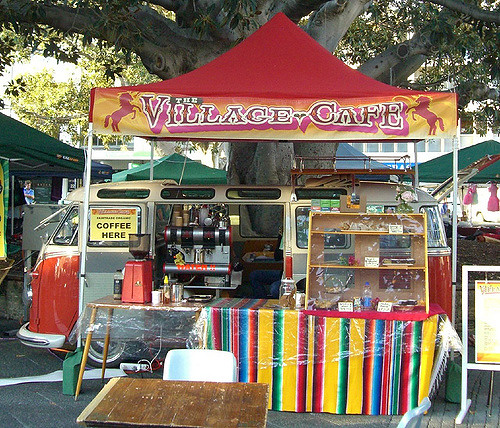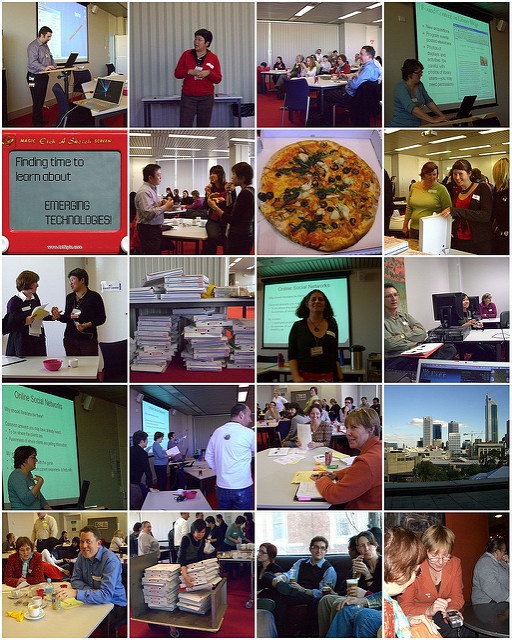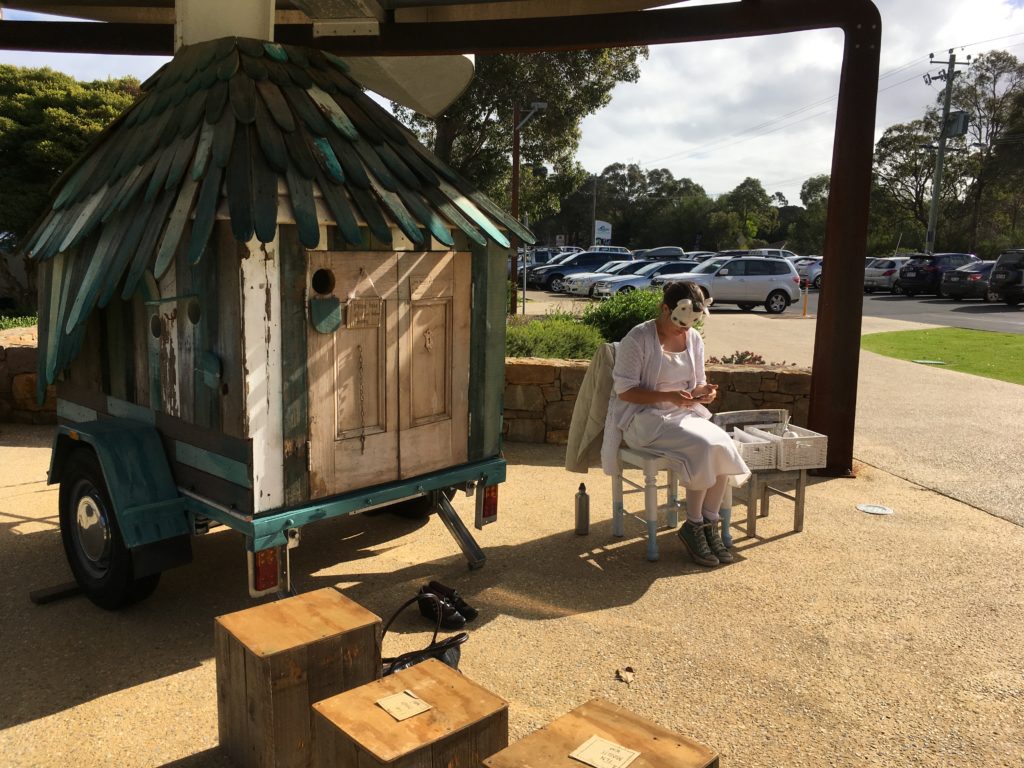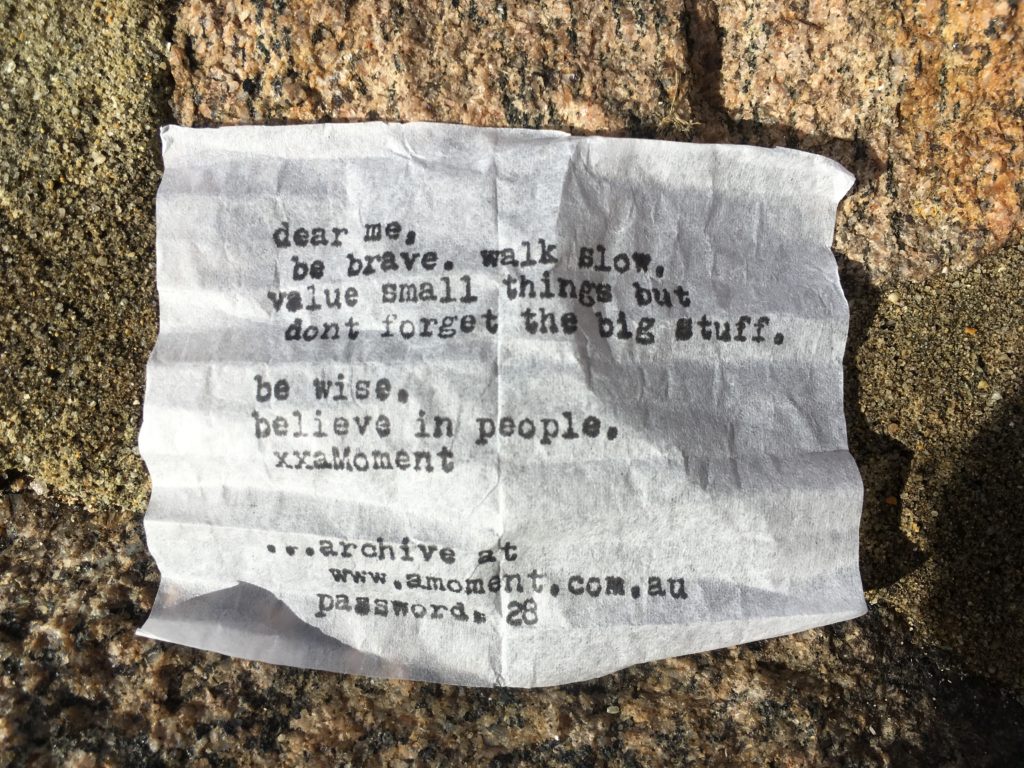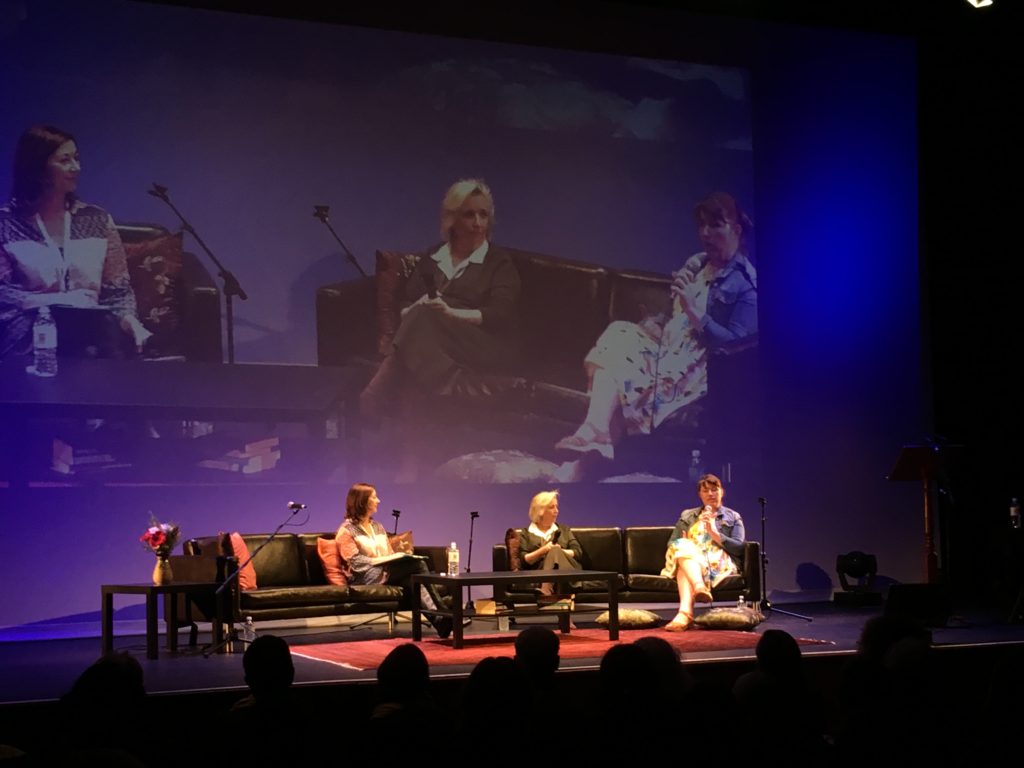Over at Curtin Information Studies Club blog, Monday’s question was What is more important – great unit content or great lecturers? Day 12 #blogjune.
Trick question.
A: Great Learners.
Slightly longer A. Important for what ?

Goehring, D. (2013). Graduation Cake Guy [Photo]. Retrieved from https://www.flickr.com/photos/carbonnyc/143186839/
Comes back to what you are at uni for. Stimulation? Engagement? To get an accredited degree so you can join a particular profession? As a basis of later higher degree?
There are a few things I do in one of my units to try to make the question asked by CURTIS folk… well… academic …
When I first started writing topic materials for my units, as a brand spanking new lecturer, one of the cleverest aphorisms that I came across was “If the lecturer is the person who is doing the most learning in the unit, then there is something wrong”. In other words, if in preparing the lecture, or writing the notes for online students, I learn a huge amount … then try to stuff this pre-prepared into the heads of passive learners, I am probably doing it wrong.
I try to put some responsibility back on the learners, in a way that maybe some unit coordinators do not. It is kind of “insurance”, for both me and the students, against me having either mediocre content or being a mediocre lecturer. In some ways, I want ME and what I have prepared to not matter, not have so much influence on, the outcome for the students.
- The first thing I get students to do, for a small number of marks, is to articulate within the first two weeks what they want to get out of my unit. I used to get people to keep checking whether they were achieving this throughout the unit, but time pressure means I have cut that out now. It helps me to have some idea WHY you are there. I go back and look at this before I chat with you about anything to do with the unit. Better still, however, you have had to think about why you are here, what you want to get out of the unit. I hope this gives you a sense of responsibility to get out of the unit whatever is your own unique aim.
- I try to give you a reason to learn what I am presenting. I used to give students a small number of marks to look through real job ads and locate positions in the field where you would need the knowledge covered in each topic, specifying exactly WHICH knowledge. Far better to discover what the profession is asking, directly from the profession, than for me to just assert this is important. Again, time constraints mean that I cut this out of unit assessment.
- I tell you 5-7 Learning Outcomes for each topic. Quite specifically. For example for one week the learning outcomes are:
- Define the term “hardware” and name some common hardware used in information services
- Describe “cloud computing” and discuss some of the advantages and disadvantages of “cloud computing’ for individuals and organisations
- Discuss the impact of mobile devices on service provision in information services
- Describe what an operating system does
- Identify three different types of desktop operating system – Microsoft Windows, Mac OS, Linux
- I tell students this at the start of a three/four week module, and also ask them to allocate their time so that if they are unfamiliar with a topic they know they will need to put in more time, if familiar, to focus on other aspects. If my lectures or topic material do not help you to achieve this, you have an outline of what you should know by the end of the topic. Even if you need to go and hunt it down for yourself in forms that make sense to you, at least you have some idea what it is you need to find out about.
- I try to add a social element to your learning, so that in some ways you are also responsible for how well your classmates learn. And you get to offer and use each other as a resource. I used to have a team work component until – oh, you guessed it – time constraints meant that managing this took too much time, so I cut it out of my unit.
- I still have one assessment where each student reviews a different new tech and shares the summary with classmates. As part of the postgraduate work, each one finds a relevant journal article from the last two years, shares a summary with classmates and then asks questions that classmates then need to answer. Again, you get to see how other learners learn, have peer-modelling for the assessments. I generally find that the useful topic material, gathered by the students for each other, tends to be more current and more relevant to them as learners than any updates I could hope to write each semester.
- I try to have very, very clear instructions about what you need to do in assessments, for the parts I DO NOT care about. So, instead of you worrying about what the title of a post should be, how long it should be, when it is due, what subheadings you should have, I tell you this in exact detail. Then we can BOTH concentrate on the “thinking work”, not extraneous details.
- I give you very clear marking criteria for each assessment, and tell you the weighting (how important it is when I mark). I make sure that markers stick to the marking criteria. No surprises or double-guessing WHAT it may be that I want. If I use strange phrases like “demonstrate growth of subject knowledge by using correct disciplinary terms and concepts” , then I will probably make you a little movie showing you how I interpret this. This, again, should free you to focus on the important “thinking work”, and let me step back.
- I try to design assessment to be “self saucing” a lot of the time. You can double-check for yourself whether you are doing it right or not, and correct it for yourself before submission. For example, some of the technical exercises involve taking a screenshot of “xyz” (with your name prominently on the screen). If you did the steps before incorrectly, then “xyz” will not BE on your screen, so you know that you need to backtrack and can analyse and correct for yourself. If you are meant to embed a movie in a web page and no movie appears, then you can follow it up for yourself.
- I try to model my expectations of you as learners. If I expect you to swallow down your embarrassment about appearing on a movie or audio piece, then I sure as heck will put myself in the same position of vulnerability and model this kind of communication. If I expect you to be confident that you can problem solve, I try to share examples of how I have problem-solved in the past. If I expect you to know how to ask questions about technology, I make sure I model question asking.
- I offer to give personal 1:1 feedback about how you are going in the unit, via Skype or via phone. I strongly encourage students to take this up. The first question I ask during one of these sessions is “how do you think you are going?” I actually want you to think about and articulate where you are at. I am not sure that students are often asked that. It is probably the most important question I ask in the whole unit. We tend more to have a model of us instead telling students how they are going. Sometimes people get a sheer confidence boost when they realise for themselves they are going OK, sometimes we can work together on issues of understanding. I act to confirm this or to offer pointers, but, with this question, I aim for the student to be in charge.
So, my answer (after all this) is, I HOPE that my units are robustly enough designed so that my personal qualities as a lecturer, and the material I present, are not as influential as the student’s own ability to learn DESPITE this 🙂


